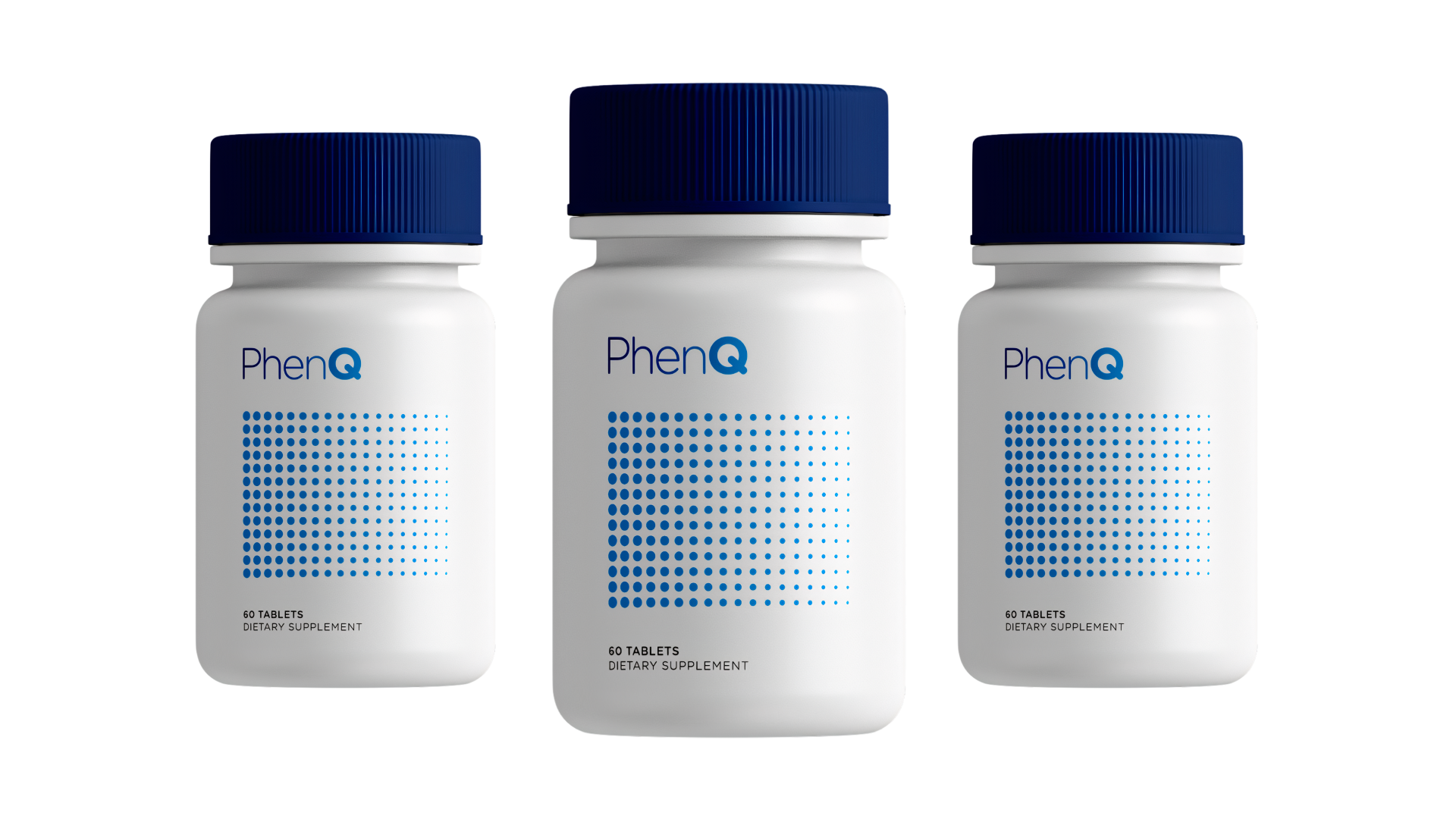Alpha lipoic acid is often marketed as a weight loss supplement. It’s been suggested that the compound helps your body to burn more fat by boosting mitochondrial energy production. It has also been linked with hunger suppression, inflammation reduction, and even anti-ageing benefits. But does it really work?
If you’re trying to lose weight, then you may have considered taking alpha lipoic acid as a supplement. You might be wondering whether it’ll help you burn stubborn body fat and achieve your dream figure. Perhaps you’ve heard about it and just want to know a little more about how it works. Or just want some clarity on whether there’s any evidence to support those compelling alpha lipoic acid weight loss claims.
In this article, we review the health benefits, the science behind it, potential side effects and recommended dosage so you can decide whether it’s worth taking for yourself.
- What Is Alpha Lipoic Acid?
- Alpha Lipoic Acid Health Benefits
- How Alpha Lipoic Acid Can Help with Weight Loss and Fat Burning
- Natural Sources of Alpha Lipoic Acid
- Effective Dosage for Weight Loss
- Possible Side Effects

Alpha lipoic acid is a compound with powerful antioxidant properties. It’s produced by the body inside the mitochondria – tiny parts of a cell that convert nutrients into useable energy.
What makes this compound particularly special is that it’s soluble in both water and fat which means it can be absorbed by every type of cell. Most nutrients are only soluble in water or fat but not both so are limited in where they can travel. Alpha lipoic acid (sometimes known as ALA for short) has been linked with a number of health benefits including weight loss.
Alpha Lipoic Acid Health Benefits
Because of its versatile nature, alpha lipoic acid plays a role in a number of different areas of the body. It’s associated with a wide variety of functions and systems with more and more research being conducted on it continually. According to current scientific evidence, alpha lipoic acid benefits include…
- Reducing inflammation
- Lowering blood sugar levels
- Improving nerve function
- Slowing skin ageing
Reducing Inflammation
Inflammation has been linked to a number of conditions such as cancer, arthritis, and diabetes. Research indicates that alpha lipoic acid can reduce inflammation which may, in turn, decrease the risk of related diseases. A review of 11 scientific studies found that ALA decreased markers of inflammation in people who had high levels.
Lowering Blood Sugar
Alpha lipoic acid has been shown to lower blood sugar levels and decrease insulin resistance. It’s thought that it does this by encouraging processes responsible for fat removal from muscles. Having too much fat accumulation in these cells can make insulin less effective than it would be normally. This makes it a promising area of research for scientists looking into treatments for diabetes.
Enhancing Glucose Metabolism
Additionally, alpha lipoic acid mimics the actions of insulin, which plays a crucial role in glucose metabolism. By doing so, it helps to improve insulin sensitivity, enabling more glucose to be transported into cells rather than being stored as fat. This dual action not only supports better blood sugar control but also reduces the risk of fat storage, offering an effective approach to managing and potentially improving metabolic health.
Improving Nerve Function
Nerves connect every area of the body so it’s crucial to keep them healthy. Studies have found that alpha lipoic acid helps to promote optimal nerve function and can slow the progression of conditions like carpal tunnel syndrome. It’s even being explored as a treatment for Alzheimer’s disease and related types of dementia.
Slowing Skin Ageing
ALA may also be beneficial as an anti-ageing treatment. Studies have found that it can fight the early signs of ageing in the skin. Applying creams containing alpha lipoic acid has been shown to reduce wrinkles and fine lines. Research also indicates that it protects skin from the sun’s UV rays which speed up the ageing process. It also appears to boost the levels of other beneficial antioxidants like glutathione and vitamin C. However, it seems that it needs to be applied topically rather than digested orally for these types of effects to occur optimally.
Potential Benefits of Alpha Lipoic Acid for Bodybuilders
Alpha lipoic acid (ALA) has gained traction among bodybuilders for several notable reasons. Primarily, ALA enhances glucose uptake, directing glucose into muscle cells instead of fat cells. This process helps increase muscle size while limiting fat accumulation.
Key Benefits for Bodybuilders:
-
Muscle Growth: By improving how muscles absorb glucose, ALA can enhance muscle growth, contributing to a bulkier and more defined physique.
-
Fat Reduction: Simultaneously, the redirected glucose usage aids in minimizing fat storage, helping bodybuilders achieve a leaner body composition.
-
High Dosage Usage: Many bodybuilders opt for higher doses of ALA—ranging from 1,500mg to 3,000mg daily—to maximize these benefits. This higher intake can amplify muscle-building results during bulking phases while also supporting fat loss.
Incorporating ALA into your regimen may be a strategic choice for those aiming to gain muscle while shedding excess fat.
How Alpha Lipoic Acid Can Help with Weight Loss and Fat Burning
Alpha lipoic acid weight loss research has uncovered some interesting findings. Much of the hype around the compound is actually due to studies that were conducted on animals. These found that it can inhibit an enzyme called AMPK, which is associated with feelings of hunger. This enzyme also increases the number of calories burned while animals are resting. Although these may be exciting findings, they don’t necessarily translate to humans. Just because a compound acts one way in a rat or mouse doesn’t mean it’ll have the same effect on a person.
Research conducted on humans has shown limited weight loss effects. One review of 12 scientific studies found that taking alpha lipoic acid helps people to lose an extra 1.5lbs (0.69kg) on average over 3 months. Another large-scale review found that alpha lipoic acid contributed to an average weight loss of 2.8lbs (1.27kg) over 23 weeks. Although it did contribute to decreases in weight, there didn’t appear to be any significant difference in waist circumference. For people who are looking to slim down, there may only be a slight benefit and not one that’s physically noticeable with ALA.
To delve deeper into human studies, several large-scale trials have expanded our understanding of ALA's potential for weight loss:
-
2015 Study in Obesity Journal : This research involved 77 overweight women divided into four groups, including one group taking 300mg of alpha lipoic acid alongside a calorie-restricted diet. Over 10 weeks, the group taking ALA lost an average of 7kgs, highlighting its potential when paired with dietary changes. -
American Journal of Medicine, 2011 : A trial with 360 participants compared different dosages of ALA. Those taking 1800mg per day experienced significant weight loss compared to a placebo group, emphasizing the effect of higher dosages. -
2010 Current Pharmaceutical Design Study : Involving 1127 participants, this study recorded an 8-9% body weight reduction with 800mg of ALA daily. However, the absence of a placebo group raises questions about the findings' conclusiveness. -
1999 Study on Insulin Sensitivity: This research, focusing on 74 participants with type 2 diabetes, demonstrated improved insulin sensitivity with ALA intake, a factor beneficial for weight management.
These studies collectively suggest that while ALA may aid weight loss, especially in conjunction with calorie restriction, the results vary and often show modest benefits. This nuanced view of ALA's effectiveness underscores the importance of a well-rounded approach to weight management.
Can Alpha Lipoic Acid Supplements Be Effective Without a Healthy Diet and Exercise?
Alpha lipoic acid (ALA) supplements are known for their potential in aiding weight loss and boosting overall health. However, relying solely on these supplements without integrating them into a balanced diet and regular exercise routine may not yield the desired results.
Why Lifestyle Matters
-
Enhanced Results: Research indicates that ALA supplements show the most pronounced benefits when they're part of a healthy lifestyle. Combining them with nutritious eating and consistent physical activity amplifies their effectiveness.
-
Limited Standalone Impact: On their own, ALA supplements might not deliver substantial improvements. They work best as a complement to lifestyle changes, rather than being a standalone solution.
Integrating ALA Effectively
- Balanced Diet: Ensure your diet is rich in whole foods, providing the vitamins and nutrients ALA needs to function optimally.
- Regular Exercise: Physical activity enhances the metabolic benefits of ALA, aiding in more efficient weight management and overall wellness.
In conclusion, while ALA supplements offer valuable health benefits, they achieve optimal effectiveness when used in conjunction with healthy dietary and exercise habits.
Natural Sources of Alpha Lipoic Acid
If you’re looking to boost your alpha lipoic acid intake, then there are plenty of foods to choose from. They provide natural sources of the compound and can easily be incorporated into a healthy eating plan. You’ll find it in both animal and plant-based foods such as…
- Red meat, liver, kidneys, etc.
- Spinach
- Broccoli
- Brussels sprouts
- Tomatoes
- Peas
- Potatoes
- Rice bran
There are also supplements available that contain a much higher concentration of ALA than foods. Sometimes they have 1000 times more of the compound in them and can provide a more potent boost. However, it’s important to buy any supplements from a reputable source and ensure they’re made from high-quality ingredients.
Effective Dosage for Weight Loss
According to the research, there doesn’t appear to be a fixed alpha lipoic acid weight loss dosage. However, studies have produced results using 1200-1800mg, so that may be a reasonable guide to follow. If you’re taking it in supplement form, then there will be dosage instructions on the packet that you should adhere to. If you have another condition that may be affected by taking ALA (such as diabetes) then it’s important to consult with a medical professional first.
ALA can influence blood sugar levels, which is crucial information for individuals managing diabetes. Additionally, ALA may interact with other medications, potentially altering their effectiveness. By consulting your doctor, you can ensure that ALA fits safely into your health regimen, minimizing risks and maximizing benefits.
While there isn't a universally established recommended daily allowance (RDA) for alpha lipoic acid, a daily intake of around 600mg is widely considered safe for general health benefits. For more specific purposes, such as bodybuilding or managing diabetic neuropathy, higher doses ranging from 1200mg to 3000mg are often utilized.
To maximize effectiveness, these higher doses should ideally be divided and consumed throughout the day, preferably with meals, to enhance absorption. Always remember that individual needs can vary, so personalizing your dosage in consultation with a healthcare provider can be crucial, especially if you're managing conditions like diabetes.
Possible Side Effects
ALA is considered to be safe to take and has minimal downsides when consumed in line with instructions. Some people have experienced alpha lipoic acid side effects such as itching, rashes, or nausea but these are considered mild. Research studies indicate that you can take up to 2400mg without negative health effects, which is more than is required to deliver potential weight loss benefits. It’s not recommended for pregnant women or children.
ALA – Summary
Alpha lipoic acid is a compound with powerful antioxidant properties. It is special because it’s soluble in both water and fat which means it can enter any type of cell in the body. It’s been linked with multiple health benefits including inflammation reduction, blood sugar decreases, nerve function improvement, and skin ageing delays. However, alpha lipoic acid weight loss benefits do not appear to be significant. Although it does have some effect in animals, this doesn’t translate into meaningful weight loss for humans. Natural food sources include red meat, broccoli, and spinach. Although supplements are available, there doesn’t yet seem to be enough scientific evidence to support their use.




